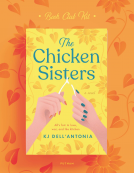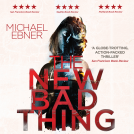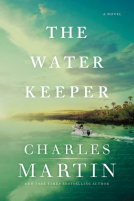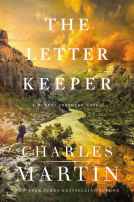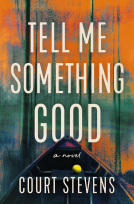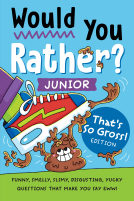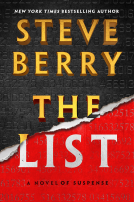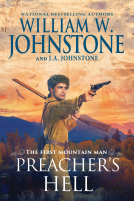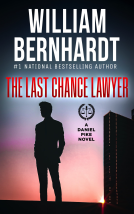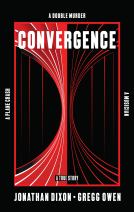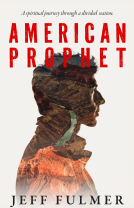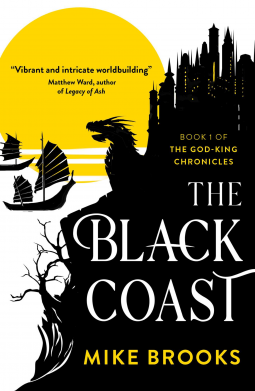
The Black Coast
Book One of the God-King Chronicles
by Mike Brooks
This title was previously available on NetGalley and is now archived.
Send NetGalley books directly to your Kindle or Kindle app
1
To read on a Kindle or Kindle app, please add kindle@netgalley.com as an approved email address to receive files in your Amazon account. Click here for step-by-step instructions.
2
Also find your Kindle email address within your Amazon account, and enter it here.
Pub Date Mar 16 2021 | Archive Date Mar 02 2021
Rebellion | Solaris
Talking about this book? Use #TheBlackCoast #NetGalley. More hashtag tips!
Description
War Dragons. Fearsome Raiders. A Daemonic Warlord on the Rise.
When the citizens of Black Keep see ships on the horizon, terror takes them because they know who is coming: for generations, the keep has been raided by the fearsome clanspeople of Tjakorsha. Saddling their war dragons, Black Keep's warriors rush to defend their home only to discover that the clanspeople have not come to pillage at all. Driven from their own land by a daemonic despot who prophesises the end of the world, the raiders come in search of a new home . . .
Meanwhile the wider continent of Narida is lurching toward war. Black Keep is about to be caught in the crossfire – if only its new mismatched society can survive.
The start of an unmissable fantasy series.
Advance Praise
“Any fan of epic fantasy will find something to love here.” -- Publishers Weekly, starred review
“The Black Coast has excellent characters and wonderful world-building, with a wealth of interesting cultural collisions. I’m already excited for the next one!” --- Django Wexler, author of The Shadow Campaigns series.
From the very first pages, you just know that The Black Coast is something very special in fantasy – a novel that celebrates goodness in dark times, but that nevertheless never forgets the joy of a good brawl. Mike’s ambition and imagination in these novels is as epic as the world he creates. Readers are going to love this.” -- Rob Dinsdale
Vibrant and intricate worldbuilding." -- Matthew Ward
Available Editions
| EDITION | Other Format |
| ISBN | 9781781088241 |
| PRICE | $16.99 (USD) |
| PAGES | 670 |
Average rating from 80 members
Featured Reviews
Possible Triggers:
There is a lot of violence and gore. This is a high fantasy with people (previously/currently) at war, raiders, and assassins. Expect death and maiming.
Characters:
So this story was fantastic in that it followed more than just a few points of views. Instead it hopped around to various points of views within the same geographical areas. There <i>were</i> dominant POV’s, but sprinkled throughout were the views of others that were only there for 1 or 2 visits. An alternate view of a situation in the same geographical location. I loved the relationships that a lot of the main characters had with their family members.
A couple of my personal faves:
Saana (Captain of the ‘Krayk’s Teeth’- Leader of the Brown Eagle Clan): A leader protecting her clan, a mother protecting her daughter; struggling with the consequences of every action and trying to hold back possible damning reactions. Saana is SO FREAKING COOL. I wanna be like her when i grow up. I appreciate her struggle to connect with a culture that is so alien to her own. I also really liked that she’s not profoundly good at anything and is willing to ask for help or lean on people that are better at things than she is when she needs advice.
Zhanna (Daughter of Saana): This creature. I love her spirit and fire! I even like her tantrums. Most of all I really liked her interactions with her mother - it was neat to see two strong characters clashing all the freaking time but still so very much because of love.
Rikkut Fireheart: He had some really awesome fight scenes and for some odd reason I felt the most emotionally charged when I was reading this character's chapters. So much passion!
Evram: He isn’t a main character, but I thought a lot of the things he did were crazy brave. He absolutely grew on me the further into the book I got.
Positives:
+ Witches, God-Kings, Dragons, Sea Raiders, could there be any more awesome things to check off in one single fantasy story? Well there is, because that's just what you get in the first few opening chapters of this book. I was the tiniest bit worried when I read the blurb on the back of the book that there were just TOO MANY aspects for the author to give all of them enough attention. I WAS VERY WRONG.
+ I LOVE the critters in this book. The dragons are interesting and varied; nice and different from usual stereotypical dragons that immediately pop into your head. The sea critters are epic. Really this is just another one of those books that has you begging for a bestiary with detailed images. I am super keen to see if there are going to be more of the awesome dragon species talked about in the next book because there was talk of many other types that weren’t really explained at all.
+ Super loved all the representations of various types of love - familial, romantic, platonic, same sex, opposite sex, found families. Especially interesting was when the cultures that were interacting together had different views on the matter and then BOTH sides discussed why or why not they stood behind those views. Seeing the “why” of each side was fascinating. I enjoy a good solid reasoning to things that extends beyond “just because”.
+ The characters actually recognize and then apologize when they have done/been wrong. Oh my giddy aunt… where have you been all my life.
Negatives:
- I struggled a lot trying to understand the LANGUAGE(?) used in PLACE to tell the readers what gender the characters identified as. I think if this was explained a bit (maybe at the back of the book, like where you generally see people of importance by location or perhaps lists of locations (glossary?)) it would add to a more profound understanding of why it’s so very important to that particular culture. Especially what the differences between “high” and “low” are specifically. The nuances are so important to the characters - I want to understand more fully.
- Character, location, and cultural names in this book are a bit of a struggle for me to pronounce (or even think of pronouncing). How the names are pronounced or what sounds the accent marks make over letters would have been a fantastic addition to the end of the book (another glossary perhaps? Really at this point it just looks like I'm asking for the book to be longer). This doesn't at all diminish the story in any way, it's just a personal nitpick as I will probably ALWAYS misspell every single name of a city, character, or place because i made it into some random other word in my head to make pronouncing it easier.
Final Thoughts:
I NEED a physical copy of this book on my shelves STAT! And maybe a very vague “expect a book two” so my nerdy little heart will have more to look forward to coming from this awesome world. This book had all the things i love: compelling characters with great relationships, creepy as heck (but also awesome baddies). FASCINATING fauna that makes me want to ask the author a million questions so I can try and sketch them out, rich and varied cultures. I am anxiously awaiting the announcement of “coming in…” and another sexy cover reveal. 10/10 will be reading again! I need to go back through so I can get lovely physical descriptions of all the dragon types again as a sketch subject.
 Rhiannon W, Reviewer
Rhiannon W, Reviewer
HIGHLIGHTS
~dragons with FEATHERS
~what flavour of gender do you prefer, we have SIX
~vikings
~gay??? lesbian??? sorry we don’t have words for those we just call them PEOPLE
~krakens
~don’t wear the brooch unless you mean it
~vote stabby princess for queen 2021!!!
The very first thing I wrote down in my notes when I finished Black Coast was: AHHHHH I LOVED THIS SO MUCH!
This is going to make very little sense, but I’m going to say it anyway: Black Coast felt like a luxury to me, like every chapter I read was a decadent gift to myself. What other people might feel during a spa day full of pampering, I felt reading this book; like I was being catered to and indulged and spoiled absolutely rotten, because Black Coast is just jam-packed full of all the things I love.
The opening of the book is a pretty good example: the ‘prologue’ of sorts is an excerpt from a fictional book, in which a Naridan is writing about another country, a series of islands called Alaba. The writer is scandilised because Alabans recognise five or six genders ‘depending on how they are counted’.
Now, from the original blurb I saw, I was under the impression that the whole of the story was going to take place in Narida. So not only was I confused as to why we were hearing about another land entirely (I really should have cottoned on!) but I was wistfully disappointed. Why did he set the story in Narida? I want to visit Alaba! were pretty much my exact thoughts.
So you can imagine my delight when I found out that Black Coast does take the reader to Alaba! The story is definitely focussed on Narida, but fear not; we spend a fair bit of time in Alaba with all its genders (which I’ll talk about in a bit).
See? My every wish, instantly granted!
The story itself is actually pretty easy to summarise: as the blurb says, a clan of Tjakorshans (you can think of them as Vikings, more or less) has appeared on the Black Coast, not to kill and steal and raid as they always have before, but to beg sanctuary and permission to settle. The adopted son of the local lord is the one who gives that permission, and is then responsible for trying to get his people to accept the arrangement, which has him working side-by-side with Sanna, the Tjakorshan clan-chief. Meanwhile, the sister of the Naridan God-King is working to hunt down and have killed a threat to her brother’s throne, a mission which almost has her crossing paths with an Alaban street-urchin who will prove very important to the outcome of that mission…
But that description really doesn’t do Black Coast any justice at all.
Firstly, Brooks’ prose is lovely; not the dreamy poetry of Catherynne Valente and her ilk, but not the blunt hammer of…authors we won’t name, either. Brooks’ prose flows like water, with just the right balance of description and action to appeal to just about everyone, with a pacing that fits the story incredibly well. Aside from the battles, I wouldn’t call Black Coast fast-paced, but it’s not overly slow either; it feels like…like the pace of life. Which works beautifully, because a great deal of this book focuses on the day-to-day life of the characters. This is far from dull, because everyone we encounter is having an unusual time, but the pacing and focus does help to make this story feel intimate, even as we’re seeing the events of an epic fantasy.
Part of this is achieved by the multiple perspectives Brooks chooses. Daimon, the adopted lord’s son mentioned earlier, and Sanna, the clan-chief, probably get the most page-time, but we also spend time with Sanna’s daughter Zhanna; a witch of her clan; some of the villagers; Daimon’s adopted brother, Darel; several Tjakorshans from other clans, who are hunting down Sanna’s clan; Tila, the princess of Narida, sister to the God-King; and Jeya, an Alaban street-urchin and pickpocket. That might sound like too many PoV characters, but it works here, especially because Brooks is careful to balance them all in just the right proportions to the rest. It makes the epic seem real; translates the grand scope of everything going on into something human, something the reader can really feel along with the characters. It’s the difference between an epic poem and a written account from someone who was there for the adventure, and I approve immensely.
And then there’s the careful mixing of cultures and the baby dragon runt that needs saving and this thread of surprising mischief and humour woven throughout, and I could probably go on forever, okay?
But folx. FOLX. I have to talk about the worldbuilding!!!
Because Brooks is a freaking master. Like all the best worldbuilders, he’s introduced one or two seemingly small things and then followed the ripple effects those things would have on the cultures they’re in. Naridan, for example, is a language without words for ‘I’ or ‘me’; every time you refer to yourself is different depending on the social status of the person you’re talking to, and your relationship with them! I just want to SHRIEK with how cool this is! But don’t panic; Brooks hasn’t introduced hundreds of fantasy words for ‘I’ that you have to remember. It’s all written as if the reader were a native speaker – thank goodness! – so, for example, Daimon usually refers to himself as ‘this lord’ where an English speaker would say ‘I’, or ‘this lord’s’ when he’s talking about something that belongs to him. If that sounds strange, don’t worry; it’s actually very easy to read, and you get the hang of it very quickly.
What stands out with Alaba also revolves around linguisitics. The Alabans recognise multiple genders, but again, Brooks has hit on a brilliant way to keep things simple for his readers. I’m agender with half a dozen nonbinary friends, and I still have trouble keeping track of some of the nonbinary pronouns English is experimenting with, so it’s a huge relief to me that the Alabans denote gender…through diacritics!!!
Diatrics are the little symbols various languages use to indicate pronunciation of a letter. If you’ve ever studied French or German, you’ve run into diatrics like à and ü. Brooks uses them to indicate Alaban gender. So, basically, the different genders are
Hè/hìm – high masculine
Hê/hîm – low masculine
Shē/hēr – high feminine
Shé/hér – low feminine
Thëy/thëm – agender, genderless
They/them – gender-neutral formal
EXCUSE ME WHILE I SHRIEK MY WORLDBUILDING-ADDICT HEART OUT
Again, this is a system that looks intimidatingly complicated at a glance, but in practice, it’s so clear and easy! I will admit that I wasn’t sure how to pronounce everything while I was reading, but as a reader, it’s so easy to keep the different genders straight because the signifiers are visual while you read! Folx, this is so freaking clever! You don’t need to memorise entirely new words, pronouns that are unfamiliar to you; you just need to keep track of the diatrics on she/he/they, and that’s so much easier than you might think. After a few paragraphs of Alaban PoV, I had a handle on it just fine.
The whole thing makes me just want to swoon. This is the kind of worldbuilding I live for! And this is without getting into the freaking DRAGONS, or how Naridan culture doesn’t have words for being gay, lesbian, or bisexual, because those things are just considered normal. This is without writing an ESSAY on the differences between Alaban and Naridan religion – and Tjakorshan, for that matter.
And the thing is, absolutely none of this is info-dumped on the reader. Brooks doesn’t drown you under a ton of strange new information at once. It’s all introduced naturally, and switching between PoVs helps because we get to be in the head of a character who is encountering the New Thing for the first time, just as the reader is. So you’re never left feeling stupid or confused or overwhelmed. It’s all done so deftly that you almost don’t notice that you’re learning something new about this world Brooks has created.
So we’ve established that, if you’re looking for great worldbuilding, Black Coast has it in spades. But it also has a fabulous cast, all of whom just feel so human, even when they’re coming from a culture very different to the reader’s. Daimon is shy but determined to do what he thinks is right, even when everything he’s grown up with demands he do otherwise; Sanna is driven to protect her people, but she’s also a mother who worries about her daughter; Tila is a princess with so many knives. They’re all trying to survive, to take care of what’s theirs and safeguard the future, and even the ostensible villains are compelling as hell.
Brooks also lays the foundations for even bigger challenges to come, dropping hints that click together in your head to form eye-widening theories. Bits of history and mythology from the different cultures seem interconnected, and there’s both magical and political unrest gathering not-quite out of sight, but it’s hard to consider that properly when the immediate stakes are so damned high!
TL; DR: This is a fabulous novel that opens what promises to be an extremely epic series, and if you haven’t pre-ordered it already, you need to.
It’s out on Tuesday, so there’s still time!
Now, if you don’t mind, I’m just going to lie here and pine for book two for a bit.
READ THIS BOOK SO I HAVE PEOPLE TO YELL ABOUT IT WITH, OKAY???
 Rebecca H, Reviewer
Rebecca H, Reviewer
VIKINGS BABY! Well, sort of. The Black Coast is largely focused on the Black Coast area, which is often attacked by raiders that cross the sea (a viking-esque people). Recently however, they’ve undergone some nasty political upheaval (a creepy draugr overlord) and one of the clans has decided to find themselves a new home. The clan leader Saana decided to risk parlaying with the Naridans in hopes they will allow her people to settle and begin a new life. The Naridans of the Black Keep are horrified to see a massive host of Iwernian ships sailing toward their shores. And then a white flag is raised.
On the flip side, there’s lots of interesting stuff going on elsewhere in the world. Tila, the sister to the God King is set on assassinating a splinter group of their family line that lives across the sea. This splinter group lives in secrecy and no one knows what they look like or what alias they are living under. The main POV in this area is a pickpocket named Jeya who ends up befriending the son of the splinter king. There are sooo many POVs within this story that I won’t attempt to touch on all of them because we’d be here all day. The Naridans at the Black Keep, Saana’s clan, the agent of the Golden (the draugr overlord), Tila, and Jeya all have their chapters. It really does help to flesh out the world quickly and pretty thoroughly as you read along. It also lends an epic scope to the story that would have been difficult if focusing solely on any one of the characters.
This is an action packed, fascinating world that I think has something for everyone. Political intrigue, assassination attempts, dragons, a criminal underworld, and even some sexual tension. I won’t call it romance, as it’s uh… a bit of a weird love triangle that might be kind of one sided(won’t spoil that one further). There is SO MUCH going on in this book but it’s deftly executed and trust me, not all of the characters are likable and especially not good. On many occasions, they choose what they think is the lesser of two evils and those choices don’t make everyone happy.
Simply said, I loved this book. It was the perfect mix of action and political intrigue with cool countries and cultures that I can’t wait to see in further detail.
4.8 / 5 ✪
https://arefugefromlife.wordpress.com/2021/02/14/the-black-coast-by-mike-brooks-review/
The Black Coast is the first in the brand new fantasy epic series, the God-King Chronicles. Instead of a novel of war or chaos, or another GoT-esque fantasy, Black Coast details the coming together of two very different cultures—enemies, even—as they try to live together in peace. It’s more of a… controlled chaos.
Saana, Chief of the Tjakorsha, has left home for the last time. Fleeing the Golden, an immortal draugr heralding the prophesied end of the world, the Brown Eagle clan arrives on Naridan shores seeking a new home—one that they will find one way or another. Daimon Blackcreek is the adopted son of the Lord of Black Keep, and when the raiders draw up on shore he fears the worst. But when the clan lays out their plea for peace he sees but two options. Either the Blackcreek’s can accept the raiders into their home and attempt to live as one, or the Brown Eagle may rebuild their home in the ashes of Daimon’s own. But his father has different ideas—and will never surrender to such savages. Leaving Daimon with one choice.
A choice that will guide him throughout the story.
Elsewhere a silent war rages between the two descendants of Nari—the God become flesh. While Tila’s brother, Natan, rules in Idramar, the Splinter King inhabits the east, living like a sideshow amongst the City of Islands. While at the moment the Splinter King offers little dissent, Tila knows that should anything happen to her brother before he produces an heir, the Splinter King will take center stage. And so she sets off on her own expedition to find this would-be King. And end him.
The characters Brooks has created have always been strong; as readers of his Keiko series will know. The characters of Black Coast exemplify this, with a few exceptions. The Lord Daimon Blackcreek is an honorable-enough man, doing everything he can to protect his people. He’s also a bit of a self-obsessed asshole, and a young and naïve one to boot. Chief Saana is the brave and innovative leader of the Tjakorsha, as such leading her people from their ancestral home to settle on the shores of their age old foes. A passionate leader, she remains quick to anger while still preaching the importance of peace. Jeya seems your prototypical urchin. Thief, ragamuffin, waif—she didn’t make a great impression at first, but upon digging into the text, the reader will learn that just like most other humans, she will fight just as hard as anyone else when the cause appeals to her. Rikkut’s a bit insane, but in a human way. Tila was the biggest letdown of the main cast. Sister to the God-King, Tila leads a double life, but nothing approaches the love that she holds for her brother. While I didn’t find her character weak, exactly, it was just hard to buy the disassociation between her two personalities.
My largest issue with this read comes very late in the book, so this makes it quite difficult to explain while still avoiding spoilers. Sufficient to say that it’s Saana, who up to this point has been a caring, doting mother, sometimes even going above and beyond the cultural norms her own tribe allows to keep her daughter, Zhanna, out of danger. While there are a number of events that prevent her from doing so throughout the book, when it’s up to Saana she will not risk the already tenuous relationship she enjoys with her daughter. That’s what makes this event so out of character; it’s the complete opposite of anything she’s done to this point—and it’s so blatant I found it a bit insulting to her character.
As for the plot, I was pretty much entranced from the beginning. Brooks has built a good one here: the blending of very different cultures clashing in obvious and unseen ways alike, several cultures with many and often fluid gender options while some are just the rigid two, a believable fantasy epic about peoples avoiding war instead of running flat into it. The main cultures and their interaction steals the show, as two particular ones take center stage—the Tjakorsha and the Naridans of Black Keep. While the Splinter King sub-plot and Jeya’s role in the City of Isles kept me more than entertained enough, the interactions between the two former enemies just wowed. I really have no notes or complaints: this was an INCREDIBLE story!
The world was large and well-built, with peoples and dragons (did I mention the DRAGONS???—multiple species of different and sometimes ridable dragons) and rumors and legends of more lurking at the map’s edges. Not only can I not wait to see more of the story, but I can’t wait to see what lies beyond the edges of the world that we’ve explored thus far.
TL;DR
The Black Coast is the fantastic high fantasy debut for Keiko author Mike Brooks. Telling an enthralling, action-packed, and ofttimes difficult story full of unique and human characters in a vivid, highly-detailed world. While each character had their flaws, they also had their own sets of motivations and experiences—some of which clashed over the course of the tale. For the most part each character impressed throughout, though there were a few hiccups over the course of this 700-page epic. The story of Black Coast was amazing, but its people and cultures stole the show—particularly their beliefs and interactions that swung wildly between peace and war throughout, sometimes at the drop of a hat. All in all, for a story that included dragons, witches, krakens, samurai, assassins, intrigue, plot-twists and more—the Black Coast is one book you need to make time for this year!
 Samantha G, Bookseller
Samantha G, Bookseller
An amazing book in a uniquely imagined fantasy setting that explores what comes after a war. Mike Brooks is a relatively new voice in the fantasy genre but, I’m sure that The Black Coast will sweep readers away into the world he created with the first book in The God-King Chronicles.
This multi-POV story is filled with realistic, layered and fascinating characters that have their own personal struggles. I loved watching them grow over the course of the plot; getting to spend time with characters that are ultimately working towards a better world is extremely refreshing for this genre.
Also, I want to highlight the fact that The Black Coast is a book that has a queernorm world! I love seeing fantastic queer representation and identity exploration in adult fantasy since it isn’t as common as it is in young adult novels.
With war-dragons, armoured knights, sea-faring raiders, dangerous magic and intense battle scenes, The Black Coast is sure to please any fantasy reader.
 Allison K, Reviewer
Allison K, Reviewer
I have not read anything by Mike Brooks before, but when I saw this book floating around social media, I was intrigued and subsequently grateful to receive an eARC from NetGalley and Rebellion Publishing.
Driven out of their lands by a daemon known only as The Golden, the Tjakorshi -- lead by their female chief, Saana Sattistutar -- made the treacherous voyage across the seas to Narida, specifically to Black Keep, a land they had raided many times before. When seeking parlay, Daimon Blackcreek betrays his law father and law brother -- and his own honor -- to attempt something unthinkable: peace, between his people and those of Tjakorsha. Elsewhere in Narida, war is brewing as the God-King's rule is threatened by the Splinter King and his family, and with rumors that Nari (the first God-King) has been reborn.
The main storyline in The Black Coast follows Daimon Blackcreek (of Narida) and Saana Sattistutar (from Tjakorsha) as their people try to make peace. I think the author did a really good job of capturing potential issues that might arise from years of contention between two seemingly-disparate people and cultures, and how they might work together. The rest of the plot didn't take up near as much page-time, but it did set up really nicely a lot of future plot arcs in the subsequent books in this series.
As an epic fantasy, and the first in a trilogy to boot, it did take a little to get into the flow of the story, but that's just because there's SO MUCH detail the author put into world-building -- providing distinctive cultures for the peoples of the land, crafting a plethora of believable characters, war dragons, etc. -- it was, understandably, a little overwhelming at first. But once I got into a rhythm, the story flew by and felt more natural.
I also really liked the inclusivity and LQBTQA+ rep in this book. There were many queer characters present in this book, and it was (mostly) treated as the norm with no one blinking an eye, which I think is so important. Another important aspect set out in the beginning was the idea of gender in Alaba: "Alabans claim that concepts of 'man' and 'woman' do not apply, and insist they have either five or six genders, depending on how they are counted", and their tonal variations on "me" depend on whether they wish to be perceived as high masculine, low masculine, high feminine, low feminine, gender-neutral formal, or as no gender. There were scenes that emphasized the idea of not misgendering anyone before knowing for certain their preferences, and it was something that I thought was really great, especially in epic fantasy.
There was just something about this book that felt...refreshing. Now I can't wait for the next books in this series...
Thank you to NetGalley and Rebellion publishing for an eARC of this book in exchange for an honest review. All thoughts and opinions are my own.
P.S. I will add the link to my Amazon review once it goes live.
 Alison C, Reviewer
Alison C, Reviewer
This is a solid start to a series. I’ll caveat that with there are many disparate story lines to keep track of. But there is a main one that we follow, Daimon and Saana. Daimon is the adopted son of a sar (nobility). Saana is the chief of a clan of Tjakorsha (normally known as raiders). But Saana and her clan are running from something much worse that has taken over the Tjakorsha and are just looking for a place to settle. Daimon and Saana must work together to try to get their disparate cultures to work together so they can all survive. The additional POVs that are in the book seem to be more of a setup for the rest of the series, and are in other parts of the world. They were interesting to help with world building, but it was a little jarring going from chapters of Daimon and Saana to the princess playing the role of crime boss. This book does a fantastic job of creating multiple cultures and how they clash. From the people of Black Keep and the Tjakorsha, but also the ultra-poor and rich of a far-flung city. It explores relationships, identity and character development. I can’t wait to see where this series goes.
This book is amazing. The world building was amazing. The cultures created were amazing. The story was, I think you can guess, amazing. I loved this book. It started off a bit slow as I learned the world and characters. I wasn't sure where things were going, and the clip of history at the beginning didn't give a good idea of what followed. In retrospect it was very helpful, but when I read it at first it didn't mean anything yet. Once I got into the story I was hooked.
The book follows multiple characters but the most compelling are Saana the leader of the Brown Eagle clan, Daimon a lord of Black Keep. Saana leads her Tjakorshi clan across the ocean to Black Keep in Narida where in the past they have raided and pillage. This time they want to settle and build a new home. Daimon seeing the great numbers of the Tjakorshi and knowing they could easily take over the village by force he lets them in. The two cultures are every different and this leads to conflicts neither can predict.
This book does included some LGBTQ aspects. The biggest of which is that in Aalba their language denotes how one identifies, high female, low female, not male or female, high male, low male. It is an interesting addition to the culture and the confusion those from outside experience is very real.
The Black Coast has all the action and the in-betweens that make a great story. I found myself talking out loud as I was reading. It was a bit slow at first but once I got into it I couldn't put it down. I can't wait for the next book to be release. I'm really looking forward to seeing what happens next. I've already recommended the book to a few people and I know I'll keep recommending it.
Thank you to Net Galley and the Publisher for the ARC in exchange for my honest review.
Wow. Thank you so much to NetGalley and to Rebellion Publishing for allowing me to read a copy of this book. This is the best fantasy book that I've read in a really long time. I fell in love with Saana, who is by far my favorite character. A bad-ass warrior mom who sets sail with her clan to find a place they can settle and get away from a crazy demon. She's got heart and fire and is someone who I could see myself being friends with. And Daimon - courageous in the face of a father who seems pretty horrible. Kudos to him for making some unpopular decisions and standing up for what he felt was right.
There are technically three storylines occurring in the book and I can't wait to see what happens in the next installment as there are very clear cliffhangers for two of them. The demon is pretty peeved so I imagine it's going to be epic.
This was a solid fantasy and I was truly invested in the character's lives. Also, did I mention there are dragons? You can't go wrong!
The Black Coast is an incredibly well written immersive epic fantasy and the first book in the God-King Chronicles series by Mike Brooks. Released 16th March 2021 (in NA, UK release was earlier) by Rebellion on their Solaris imprint, it's a satisfyingly substantial 670 pages (print edition) and is available in paperback, audio, and ebook formats. It's worth noting that the ebook format has a handy interactive table of contents as well as interactive links and references throughout. I've really become enamored of ebooks with interactive formats.
This is a classic brick of a fantasy with detailed world building, sea-raiders, political war, armoured knights and battle dragons. Frankly the author had me at battle-dragons. Instead of concentrating on massively detailed battle scenes (there are enough to satisfy but not too many), the author shows groups of people trying to cooperate to stave off disaster for both societies instead of warring with one another to the detriment of everyone. The characters are varied and three dimensional. It is classic epic fantasy and the author's voice and the solid world building are refreshingly satisfying to read. I savored this one over several sittings. It's complex, it's immersive, it's very well written and it's not at all derivative.
Four and a half stars. I am eagerly looking forward to the next books in the series. Full of an impressive amount of fantasy bad-assery. I heartily recommend it to fans of epic fantasy in the general area of Brandon Sanderson, Joseph Malik, and Joe Abercrombie but with glimmers of something all its own which I enjoyed so much.
Disclosure: I received an ARC at no cost from the author/publisher for review purposes.
It's been a while since I have read any new High Fantasy and any time that I do, it always reminds me of being young when this was pretty much the only genre that I would read. I would've enjoyed this one then as much as I did now, though! It's a great first installment with a large scope of world-building - there are many narrators here, from across the lands. There are tinges of magic - the Golden, dragons (who seem to come in many formats and more as animal replacements instead of horses, dogs, etc) and plenty of intrigue across the plots. The societies, with their various social mores, echo some of our own - with a range of Narida's more traditional knight/serf feudal styling - though with the acceptance of same sex pairings, the gender of the Alabans is even more fluid and yet women have the most rights amongst the island dwelling raiders who forbid any gender fluidity - needless to say, this adds an interesting dynamic to the plots!
I do think that the cast size and some of the language styling may alienate some readers, but the pacing, plot and strength of the characters themselves really helps to overcome this. I definitely found myself picking this one up at every opportunity. Some characters shine more than others - the Blackcreek characters in particular were amongst my favorites (along with the Brown Eagle clan), and while some turns of the plot are more predictable than others, there are still some surprises along the way. It's entertaining and though I wanted more dragons, I am really interested to see where the rest of the books will go and I hope that the wait isn't too long! This one ends at a satisfying point -= there's plenty of set-up for the sequel, which I am definitely looking forward to reading!
With 'The Black Coast,' Mike Brooks has given us an interesting epic fantasy series opener. What I love about it are the substantive details in his worldbuilding, specifically within the illustration and interplay between cultures, which will pique the interest of any linguist/linguistic anthropologist fantasy readers out there. For example, one regional group interprets gender identity and expression completely differently than the binary gender-normative, with several different genders which are expressed with tonally-inflected pronouns, which Brooks has marked using diacritics in the text. Another culture's linguistic norms preclude the usage of personal pronouns, demanding the use of third-person, even when referring to oneself, according to strict social hierarchy. Beyond the language-based aspects of the various cultures, the story is ripe with sociocultural conflict and examination of several keystone human social constructs around which taboos and biases abound: gender identity and norms, sexuality, socioeconomic structure, political structure, religious structure, class structure, etc.
These issues are examined via a POV that shifts among protagonists from each of the various cultural groups. Each group is satisfyingly grey and complex, with flawed characters. Perspective is lent even to a character of the group of clear antagonists in the story. Overall, the perspectives are balanced: enough POV characters to make it complex and interesting, not enough to be confusing or overwhelming. Some might argue that certain characters or relationships were not as well developed, making it harder to identify with them. This may be true to an extent, but Brooks clearly set up those characters to be featured more prominently in a sequel or sequels, and one could argue that developing all of the characters equally would have yielded a bloated story.
Brooks's prose was clear, with good pacing, flow, and just enough detail. The battle scenes, in particular, stand out to me: they are excellent, with every movement and reaction vividly detailed.
Also, there are dragons. Rendered in believable, dinosaurish, land-based form, they strike a nice balance between the mystical and the mundane.
In all, a by-no-means perfect but by-all-means compelling read, and I look forward to the sequel.
4 stars, worth it!
Readers who liked this book also liked:
L.M Montgomery
Children's Fiction, Comics, Graphic Novels, Manga, Teens & YA
Jeff Fulmer
General Fiction (Adult), Politics & Current Affairs, Religion & Spirituality

